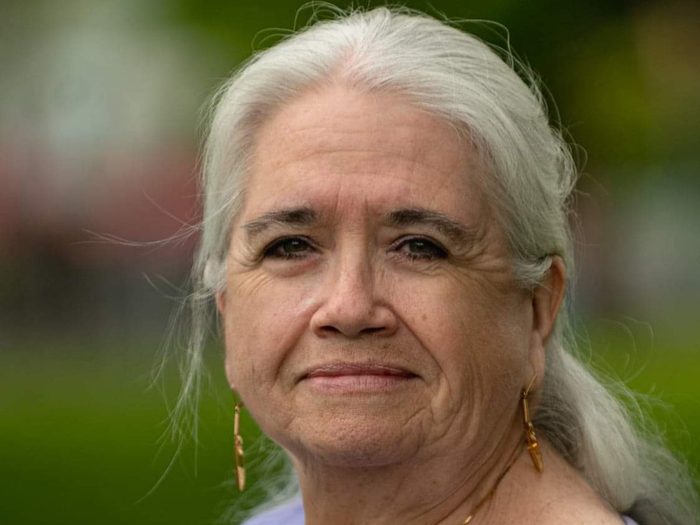
Michelle Good
Despite penning one of the best debuts in recent memory, Michelle Good didn’t always set out to become a writer. A member of the Red Pheasant Cree Nation in Saskatchewan, Good spent her teenage years advocating for Indigenous rights and, after becoming a lawyer at the age of 43, fought for survivors of Canada’s residential school system. In 2014, while still practicing law, she earned a Master’s degree in creative writing at the University of British Columbia. It was then that Good began work on 2020’s Five Little Indians, which won the Governor General’s Literary Award for Fiction. A haunting examination of the horrors and after-effects of residential schools from the perspectives of five young friends, Good drew on the experiences of family members who were themselves survivors of the system.
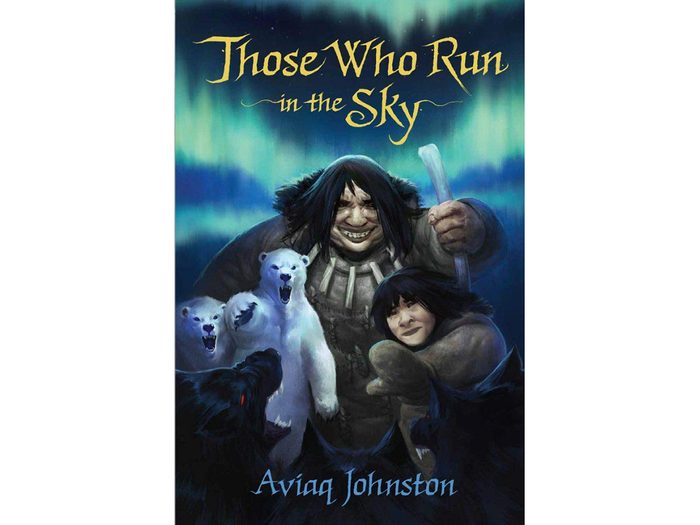
Aviaq Johnston
An Inuk author from Igloolik, Nunavut, Aviaq Johnston is one of the most promising young Indigenous writers today. Known for her children’s books and coming-of-age novels, Johnston’s work often examines themes of strength and heroism. Those Who Run in the Sky, her acclaimed 2017 fantasy novel, follows a shaman called Pitu, who, while lost in the spirit world, uses his mystical powers to protect himself from the red-eyed wolves and evil animals lurking below the frozen ice. It won the inaugural Indigenous Voices Award for English Prose in 2018.
Learn how this Anishinaabe artist is changing the way we think about the environment.
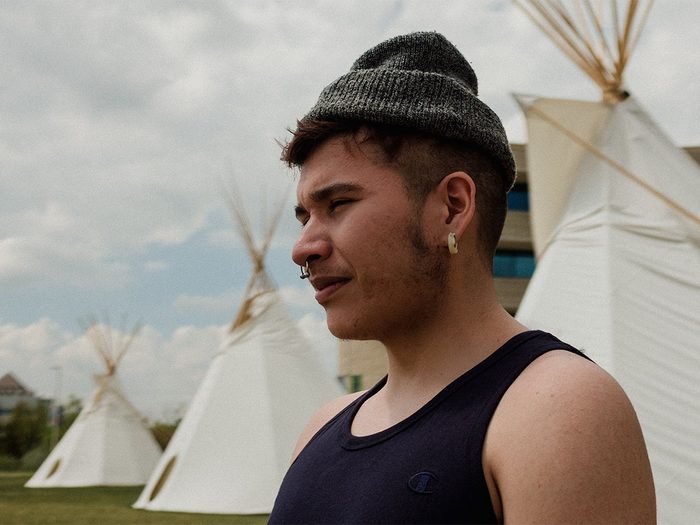
Billy-Ray Belcourt
One of the most captivating chroniclers of the queer Indigenous experience, Billy-Ray Belcourt is a member of the Driftpile Cree Nation in Alberta and teaches creative writing at the University of British Columbia. Belcourt’s debut poetry collection, This Wound is a World, won the Griffin Poetry Prize in 2017, making him the award’s youngest-ever recipient. His third book, 2020’s A History of My Brief Body, resists easy categorization, however. Part memoir, part essay collection, and gleefully jumping from one genre to another, Belcourt writes about first love, Indigenous identity, colonialism and sexuality with startling intimacy. Belcourt’s prose will change the way you think about the world.
Here’s what you need to know about Mohawk actor Kawennáhere Devery Jacobs.
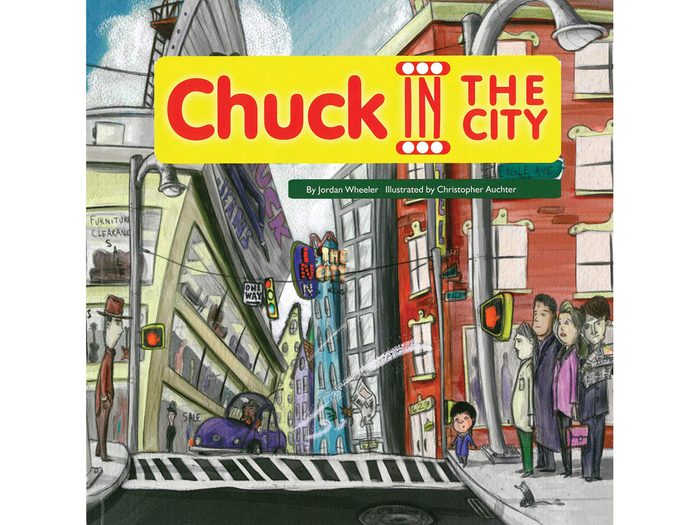
Jordan Wheeler
Jordan Wheeler’s insightful debut, 2017’s Digital Ogichida, follows Kevin Davis, a twentysomething unable to cope with the pressures of 21st century life in Canada. Better at navigating the virtual world than the real one, Kevin soon finds himself at blockades and protests because of a girl, leading him to dig deeper into his Indigenous identity. A member of the George Gordon First Nation in Saskatchewan and of Cree, Ojibwa, Assiniboine and European descent, Wheeler often writes about Indigenous youth. He also wrote for Gemini Award-winning teen drama renegadepress.com, which ran from 2004 to 2008 and followed a group of teenagers who created an independent magazine.
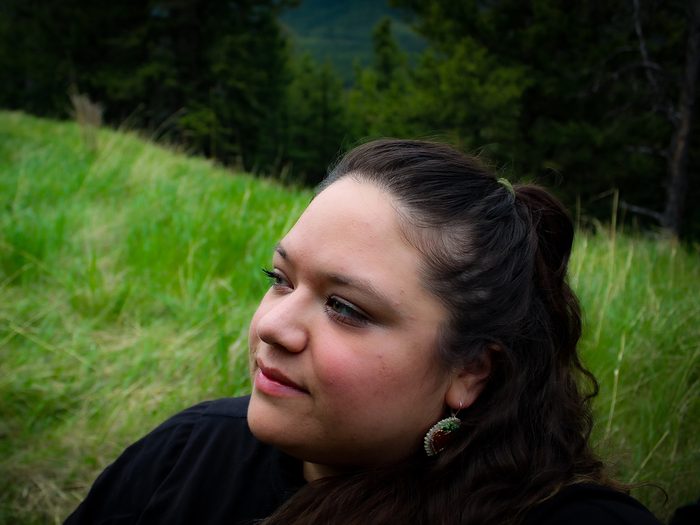
Francine Cunningham
“In a marriage between a native woman and a white man / the native wasn’t the drunk”—so begins “On Identity/Father Apart,” one of the many gut-wrenchingly personal and darkly humorous poems found in Francine Cunningham’s 2019 debut, On/Me. Over the course of 94 pages, Cunningham probes the most significant moments of her life: dealing with mental illness after the death of her mother, her mixed Indigenous and European identity, being raised in a city instead of a reserve, and passing for white. The end result, which was nominated for an Indigenous Voices Award for a poetry book in English, is an intense but beautiful read—and one you’ll be thinking about long after you finish.
Discover the fascinating story of how Cree code talkers in Alberta helped win WWII.
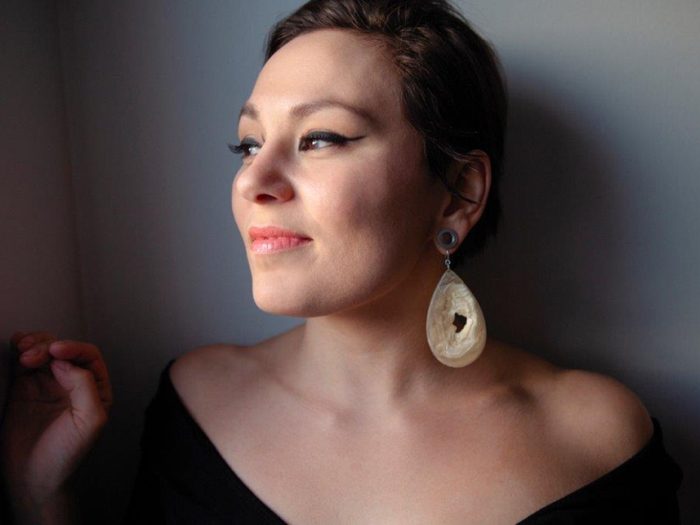
Tanya Tagaq
Tanya Tagaq, the Juno-Award winning throat singer from Cambridge Bay, Nunavut, is also a must-read writer. Her debut novel, Split Tooth, was published in 2018 to critical acclaim. Based on Tagaq’s teenage journals—she was a survivor of the residential school system—and Inuit folklore, Split Tooth tells the story of an unnamed teenage girl in the 1970s who becomes pregnant in a tiny Nunavut town. The world of Inuit legends are seemingly as alive as the animals that roam around, as the book explores the pull between good and evil, human and animal, safety and danger, and love and hate.
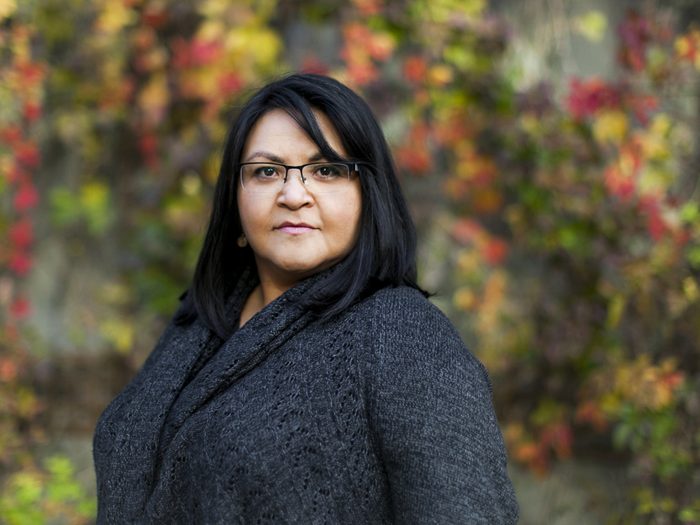
Eden Robinson
Known for her ability to infuse dark humour into serious subjects, Eden Robinson, a member of the Haisla and Heiltsuk First Nations in British Columbia, has often written about the effects of colonialism on the lives of Indigenous peoples. In 2020, her classic book, Monkey Beach, was adapted into a film, while 2017’s Son of a Trickster was adapted into a series by CBC. The latter follows Jared, an Indigenous teen and small-time drug dealer in Kitimat, B.C., who encounters a Haisla spirit. Readers should also check out Robinson’s 1998 debut, Traplines: a collection of short stories that dissect delinquency and dysfunctional families.
Learn about Theland Kicknosway’s annual marathon for missing and murdered Indigenous people.
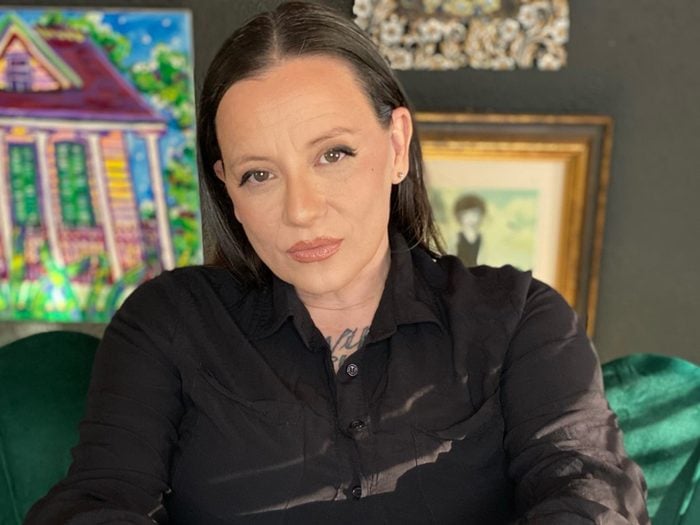
Cherie Dimaline
Set in a future where global warming has destroyed North America, Cherie Dimaline’s masterful debut for young adults, 2017’s The Marrow Thieves, centres on a group of Indigenous teens who are being hunted for their bone marrow. Why? Because it contains the ability to dream, something lost by the remainder of the outside world. Dimaline, a Métis author based in Toronto, was inspired to write the novel when she discovered that young Indigenous people are three times more likely to commit suicide than non-Indigenous people. It won the Governor General’s Literary Award for Young People’s literature. Also worth a read is 2015’s A Gentle Habit, a collection of six matter-of-fact, short stories exploring addiction.
Find out how one man revived the traditional Métis Red River cart.
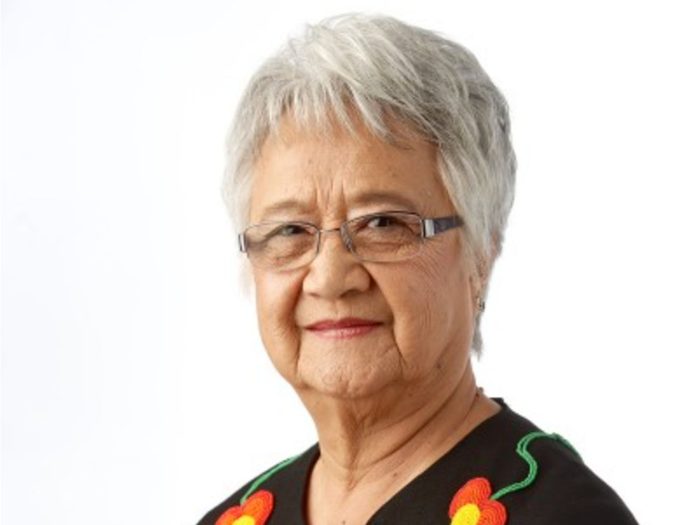
Verna J. Kirkness
In 1959, Verna J. Kirkness, a member of the Fisher River Indian Cree First Nation in Manitoba, earned her teaching certificate and started working in a residential school. For the first time, she saw just how damaging the racist, anti-Indigenous structure of the system was on her students. By 1970, she had successfully lobbied for the implementation of the Cree and Objibway languages in multiple Manitoba schools. A year later, she began to lobby for racist depictions of Indigenous people to be removed from history textbooks in Manitoba. Her debut, 2013’s Creating Space: My Life and Work in Indigenous Education, is an inspiring and heart-wrenching memoir that charts the course of her long career. It’s an absolute must-read for those who want to learn about Canada’s education system and how to be an effective advocate.
Learn how First Nations elders are keeping Indigenous plant knowledge alive.
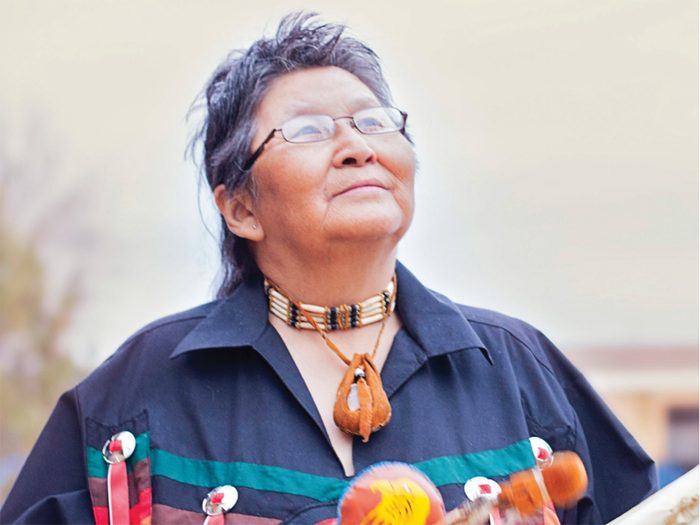
Ma-Nee Chacaby
An extraordinary memoir of triumph, A Two-Spirit Journey: The Autobiography of a Lesbian Ojibwa-Cree Elder details the artist and activist’s unique experiences as a Two-Spirit—meaning that she carries both female and male energies inside her—lesbian person from childhood to present. Two-Spirit individuals were generally accepted, if not revered (depending on the Nation) prior to colonization at the hands of Europeans. Published in 2016, the memoir recounts the abuse, racism and alcohol addiction that Chacaby fought against as a young woman, to her children and leading the first Pride Parade in Thunder Bay in 2013.
Next, find out how Buffy Sainte-Marie is making Canada a better country.